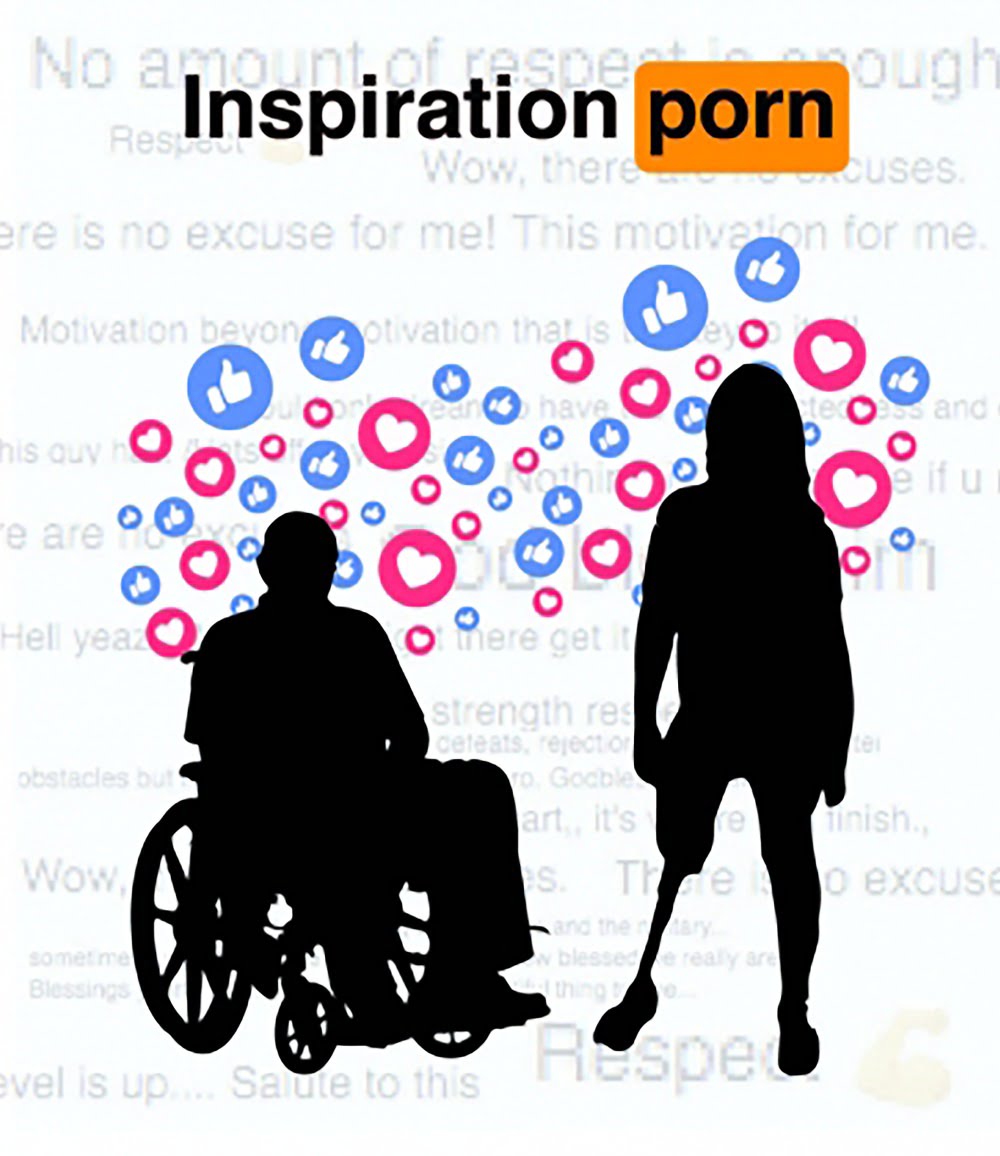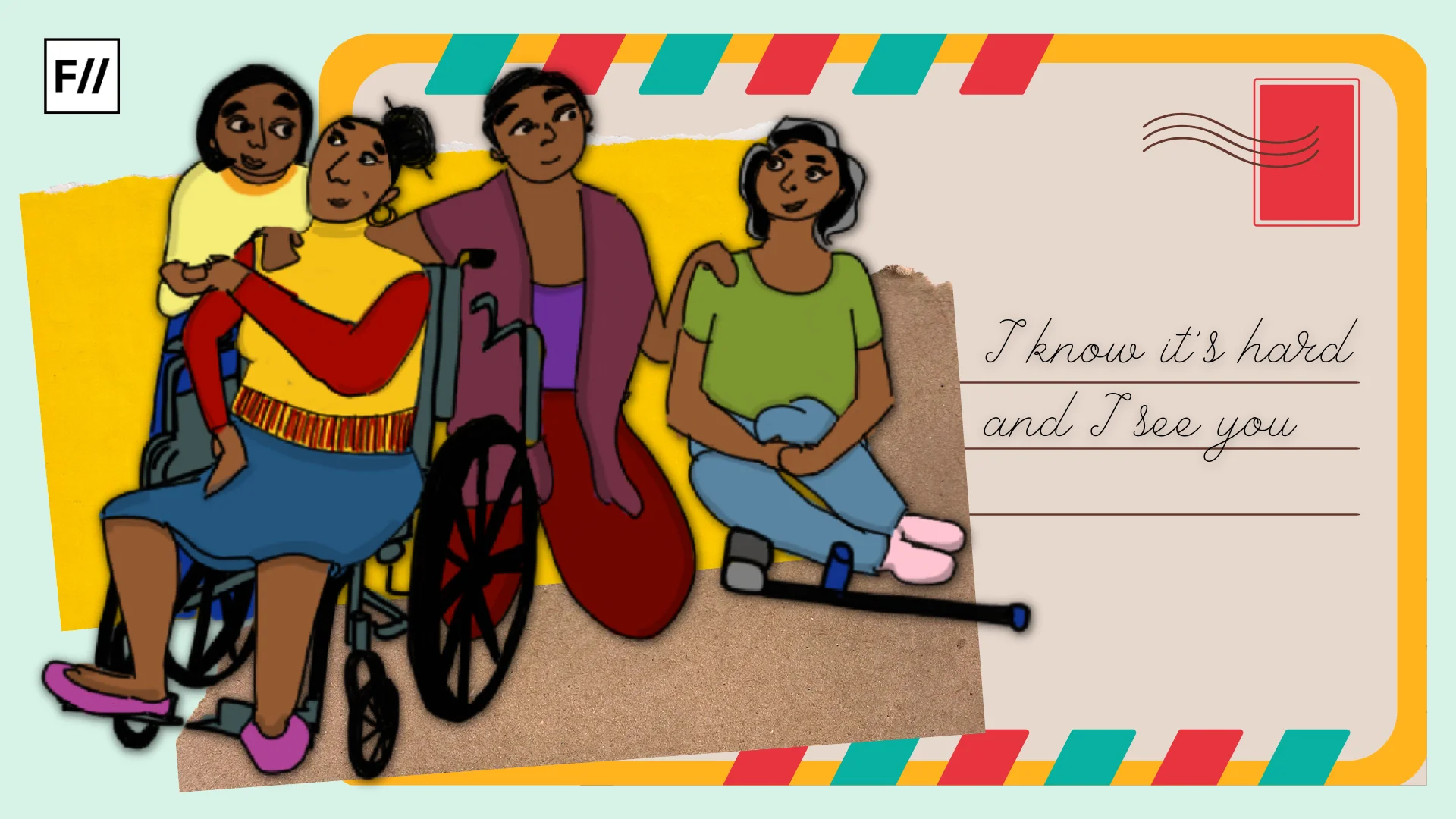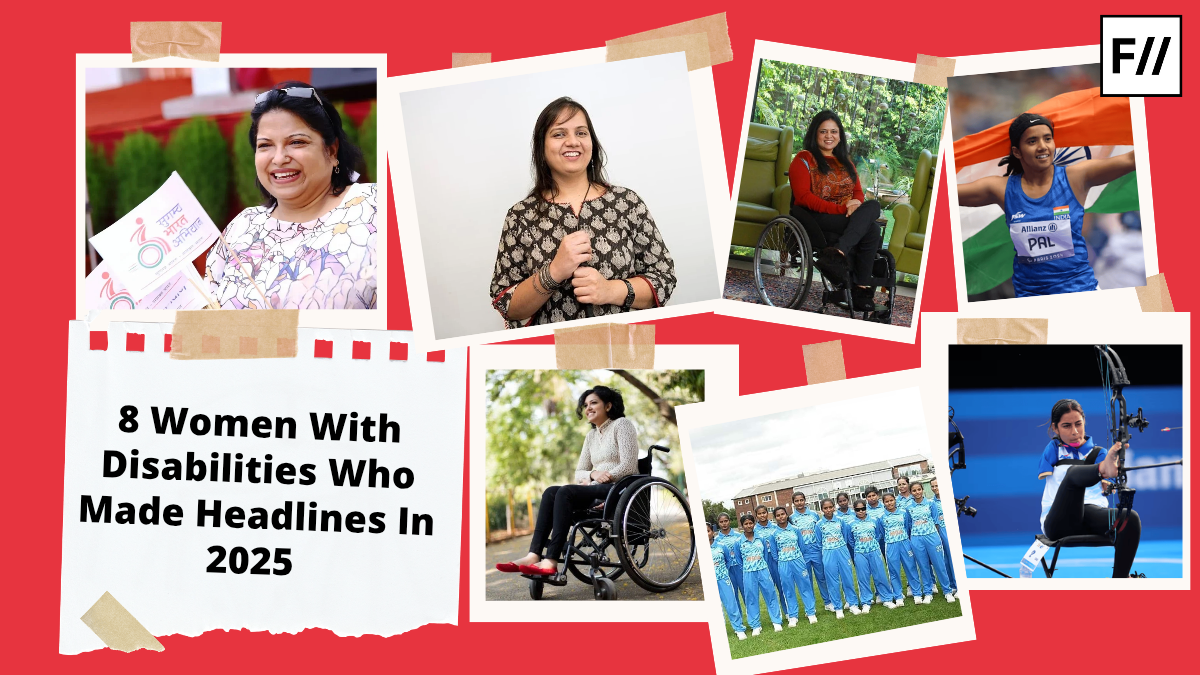I still remember the day when my class XI results were out. I and mother could easily hear the school principal shouting at one of my classmates, “When Abha, who walks with leg braces and crutches, can score 80% marks, so why can’t you? Get inspired by her!!!” I was perhaps too young to understand the relation between my walking with leg braces and my marks. I was bewildered as to how could I inspire. Since my childhood, I was taught to get inspired by those who were selfless, hard working, creative, innovative, or just dared to be different.
I thought about how my leg braces and disability could make me a different kind of student; in spite of studying the same curriculum in the same class and appearing for the same examination. No such comparison was being made with students who scored more than me and walked ‘normally’ according to them. Here the ordinary task of competing in school was given a heroic angle just because I had disability and I suddenly became ‘inspirational’.
Like all people with disabilities, I had been the object of comparison all through my life for my family members, my cousins and my friends. According to them, I had been ‘brave’ as if existing with disability was an accomplishment. Now people even get ‘inspired’ to see me married to a non-disabled man at a late age of 48. I can never understand what is so inspirational about this!
Persons with disabilities are normally portrayed as one-dimensional saints who only exist to tug the heartstrings and open the minds of able bodied people. The mentality behind such behaviour is that people are scared of disability and so they become presumptive about life with disability. For them it is always miserable and painful to live with disability. They are unable to understand the fact that like everyone, we too have good days and bad days full of challenges.
Also Read: In Conversation With Virali Modi: Shattering Stereotypes Of Disability
Persons with disabilities are used as mascots; mascots of inspiration, mascots of motivation. They are shown as examples to those with”weak minds”. They are expected to hide their emotional upheavals and put a brave smile on their faces irrespective of whatever happens in their personal lives. They are not allowed to be angry and upset; otherwise they would be “bad” disabled people. Disabled people do the same things as the non-disabled ones. They go to school, work, have friends and people they hate, have vices and virtues, they can also be complicated people.
Born out of ablesim, this ‘inspiration porn’ gives people a wrong idea about disability and pushes each one of us to do our best to “overcome” our disabilities. People walk with us, come and watch our shows, offer their helping hands and then walk away preaching to us, ‘The show must go on!’ Everybody forgets that our ”show” would also end someday. It cannot go on forever. We too are prone to vulnerabilities.
Even popular media forgets that disability is a social construct and so media remains interested in things done to or for disabled persons, rather than focusing on what the disabled person does. Even our governments and policy makers do not remain behind in labelling us as ‘divyang’ or people with divine power who can ‘inspire’ millions.
Unfortunately all this can have very harmful implications for the people with disability. The problem with being called inspirational is that it tends to make our disability our defining characteristic. For example, recently a close relative of mine got operated upon for knee replacement and exclaimed to me, “Whenever I had pain or felt helpless and dependent, I thought about you and your courage!”
The lives of people with disabilities are made open as though cherry picking, to comfort the non-disabled about their own circumstances and expose their psyche that those with disabilities are unable to achieve any meaningful quality of life. This bolsters the myth of unfeasibility of success and satisfaction while being disabled.
Persons with disabilities are portrayed as one-dimensional saints who exist to tug the heartstrings of able bodied people.
The fact that disabilities presents certain challenges cannot be negated, but it’s important to remember that we’re people first and foremost. Calling a disabled person inspirational comes off as patronising. Similarly, when you tell someone with a disability that they’re inspirational, you’re indicating that the only thing you’ve gained from meeting them is a superficial perspective on disability.
Non-disabled people have to stop treating disabled people like objects for their individual philosophical enhancement. No one has the right to define us, unless we are given a chance to represent ourselves. One of the most damaging effects of being called inspirational is that it unjustifiably renders the entire disabled community as one-dimensional. But reality is that we’re complex human beings like everyone else.
Instead disabled people should be acknowledged for their personal qualities and individuality. They are not angelic human beings by virtue of having a disability. Life just doesn’t work that way, and no one should expect them to be permanently optimistic and devoid of fear.
The best thing would be to educate the non-disabled community and condition them to advocate for our inclusion. And above all, they can treat disabled people like people worth building relationships with, and giving us privacy and respect.
Also Read: #WhyTaxDisability: GST Increases Tax On Disability Aids And Appliances
Featured Image Credit: The Crimson White
About the author(s)
A writer, a counsellor, a teacher, a social worker, a motivational speaker and an activist, Abha Khetarpal, is a National Awardee and one of the 100 Women Achievers in India. She has surfaced in Women Of Pure Wonder, a Coffee Table Book by Vodafone and also honoured with Woman of Substance Award. She works for persons with disabilities. Being a woman with disability her major focus remains on women with disabilities for whom she has authored manuals like ‘Keeping You Abreast; A handbook on breast cancer self examination’ and ‘Going with the Flow; Handbook on Menstrual Management & Hygiene’.




